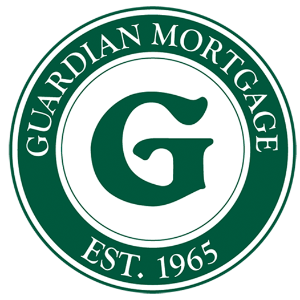
It ain’t over ’til it’s over: negotiating home repairs while still in escrow
___
Published Date 7/14/2023
Willing buyer. Willing seller. That combo almost always meant that once a deal was agreed upon, both parties don't expect any big surprises even with appraisals and inspections in the offing.
The thing is, until escrow closes (if contingency verbiage is in place) anything that is revealed during an inspection can become a point of negotiation, which means buyers and sellers can often be back at square one with their decision-making.
How so? Realtor.com’s Cathie Ericson says, “Even the dreamiest house will have some problems, and sellers might be open to the notion of fixing a few flaws—with the right persuasion.”
Once the home inspector hands you their report, here are a few ways to negotiate repairs. The absolutely first thing to remember, however, is that line from an old Indiana Jones movie. “Choose wisely.” Your battles, that is. Don’t start nickel-and-diming the sellers on minor, mostly cosmetic things the inspector found. Instead, concentrate your time and attention on major, structural issues. A resale home is like a used car. It’s not fresh off the factory assembly line and you knew that when you made the offer.
A cracked faceplate on a light switch means (heaven forfend) you’d have to head to the hardware store and spend under $8 on a new one. A piece of trim or part of a fence that was painted badly or not at all does not justify jumping up and down over it. Pointing out trivial items such as these to the sellers will no doubt annoy them. You have bigger fish to fry.
Two seller MUST-FIX items are: (1) Water penetration/intrusion issues, such as a wet basement or moldy walls (2) Local code safety violations, such as missing handrails or an unstable deck. Your lender will likely require certain repairs to take place before funding your loan. After all, they are taking a chance on this house as well. As such, certain repairs listed on the home’s appraisal report will have to be fixed, too.
The big stuff that begs the question of negotiation includes items like foundation issues (like huge cracks in the concrete slab or a floor that slopes), ancient ungrounded electrical wiring, old galvanized water pipes or anything that leaks, vital roof repairs, rotting sewer pipes, or heating/cooling systems that are determined to be on their last legs. This is serious stuff, not to be trifled with.
Any and all of this requires research as well as a degree of judgment on the parts of both buyers and sellers. A visible sign of water damage that was remedied several years back which needs little more than some paint or drywall repair is not a battle to fight. It’s quite another thing to have evidence of how fresh the leak is, how extensive the damage still is, and then get an estimate of how much it will cost to fix. The more specifics and backup you can provide, the better. Even a home inspector or appraiser will hesitate to test out what appears to be a shaky porch or balcony with their own weight, but you can be sure that they will voice their concerns.
Once a seller has agreed to sell to you, understand that in their mind, the proverbial diva has already sung. It’s all over but for the standing ovation, when they receive their funds from the sale. So rather than try to get the seller to coordinate and pay for the work, ask for a “repair credit.” That means the buyer can knock the amount of the repair off the price of the home.
Ericson asked New York-based professional inspector Scott Brown about this. He recommends asking for a repair credit on any problem that’s more than $500. “This is actually in the buyer’s favor, as the seller no longer has a vested interest in ensuring the job will be done right. Otherwise, the home seller will almost always find the cheapest available contractor or family member to fix the problem,” says Brown. “Meanwhile, you as the buyer would, of course, prefer the best contractor available.”
Realtor, TBWS
All information furnished has been forwarded to you and is provided by thetbwsgroup only for informational purposes. Forecasting shall be considered as events which may be expected but not guaranteed. Neither the forwarding party and/or company nor thetbwsgroup assume any responsibility to any person who relies on information or forecasting contained in this report and disclaims all liability in respect to decisions or actions, or lack thereof based on any or all of the contents of this report.
Guardian Mortgage, a division of Sunflower Bank, N.A.


Dean Wegner
Mortgage Area Manager
NMLS: NMLS# 220741
Guardian Mortgage
16430 N Scottsdale Rd #120, Scottsdale AZ
Company NMLS: Dean Wegner
Office: 602-432-6388
Cell: 480-286-3303
Email: deanwegner@gmc-inc.com
Web: https://www.guardianmortgageonline.com/loanoriginators/Dean-Wegner

Dean Wegner
___
Mortgage Area Manager
NMLS: NMLS# 220741
Cell: 480-286-3303
Last articles
___

Markets expect a volatile week with lots of inflation data
4/8/2024
Last Friday the employment report shocked with the unexpected big increase in jo... view more

The week ahead is packed with economic news
10/30/2023
For a brief moment about 6:30 am ET this morning the 10 year note yield traded u... view more

Markets will be focused on FOMC today
9/20/2023
At 9:30 am the DJIA opened +66, NASDAQ +11, S&P +8. 10 year note 4.33% -3 bp. FN... view more

Inflation will be the focus for this week
9/11/2023
Overnight the 10 year note traded at 4.31% +4 bps, by 8:30 am ET 4.29%. MBSs ope... view more

Three things that could impact rates this week
9/5/2023
These are the three areas that have the greatest ability to impact rates this we... view more

Markets will be focused on inflation and employment this week
8/28/2023
No data today but two Treasury auctions, at 11:30 am ET $45B of 2 year notes; at... view more

The Bank of England remains steadfast in its battle with inflation
8/3/2023
The July Challenger Job Cuts were only 23,697 versus 40,709 in June. It was over... view more

Say it isn’t so; myths about today’s housing market
7/25/2023
When Journey came out with their ‘80s hit “Don’t Stop Believin’,” it’s a stretch... view more

‘Working from home’ might someday mean working from your old high-rise office building
7/24/2023
It’s no secret. In fact, it’s a problem. Not enough housing and too much office ... view more

Market’s will be focused on FOMC this week
7/24/2023
The Fed has essentially guaranteed a 25 bp increase on Wednesday. The issue is w... view more
Load more
 Guardian Mortgage
Guardian Mortgage









